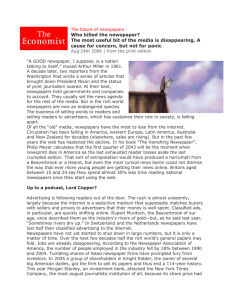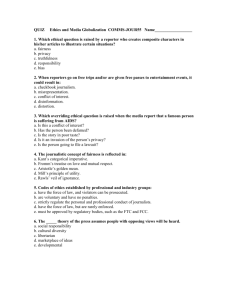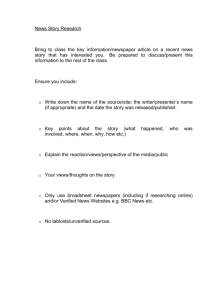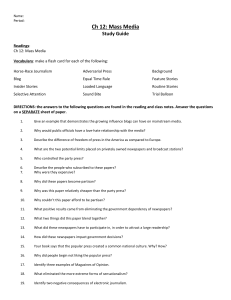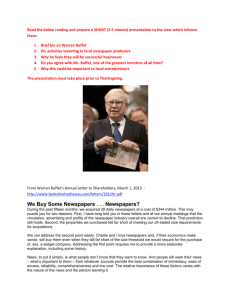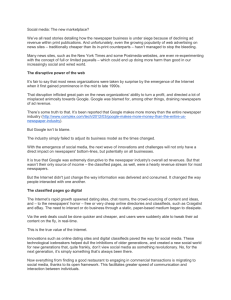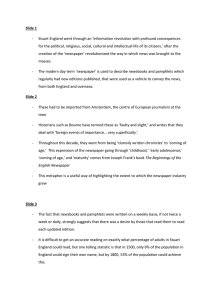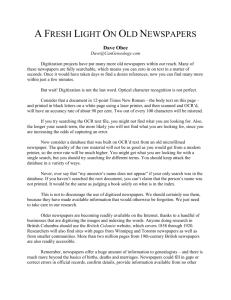Document A: Who killed the newspaper?
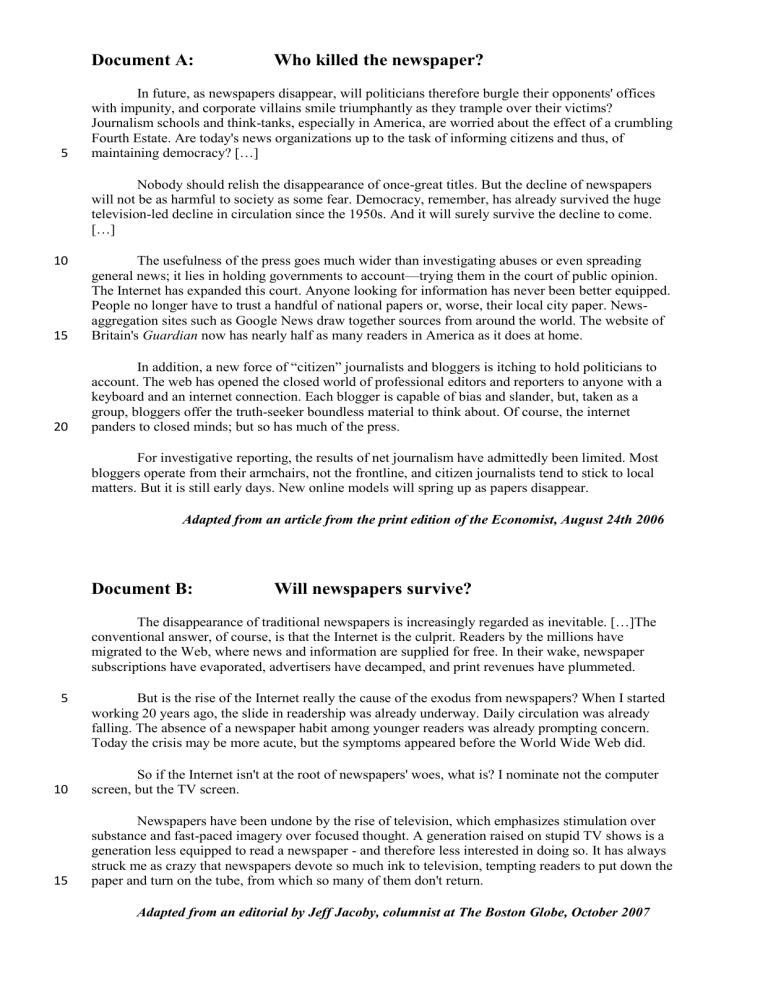
Document A: Who killed the newspaper?
5
In future, as newspapers disappear, will politicians therefore burgle their opponents' offices with impunity, and corporate villains smile triumphantly as they trample over their victims?
Journalism schools and think-tanks, especially in America, are worried about the effect of a crumbling
Fourth Estate. Are today's news organizations up to the task of informing citizens and thus, of maintaining democracy? […]
Nobody should relish the disappearance of once-great titles. But the decline of newspapers will not be as harmful to society as some fear. Democracy, remember, has already survived the huge television-led decline in circulation since the 1950s. And it will surely survive the decline to come.
[…]
10
15
20
The usefulness of the press goes much wider than investigating abuses or even spreading general news; it lies in holding governments to account—trying them in the court of public opinion.
The Internet has expanded this court. Anyone looking for information has never been better equipped.
People no longer have to trust a handful of national papers or, worse, their local city paper. Newsaggregation sites such as Google News draw together sources from around the world. The website of
Britain's Guardian now has nearly half as many readers in America as it does at home.
In addition, a new force of “citizen” journalists and bloggers is itching to hold politicians to account. The web has opened the closed world of professional editors and reporters to anyone with a keyboard and an internet connection. Each blogger is capable of bias and slander, but, taken as a group, bloggers offer the truth-seeker boundless material to think about. Of course, the internet panders to closed minds; but so has much of the press.
For investigative reporting, the results of net journalism have admittedly been limited. Most bloggers operate from their armchairs, not the frontline, and citizen journalists tend to stick to local matters. But it is still early days. New online models will spring up as papers disappear.
Adapted from an article from the print edition of the Economist, August 24th 2006
Document B: Will newspapers survive?
The disappearance of traditional newspapers is increasingly regarded as inevitable. […]The conventional answer, of course, is that the Internet is the culprit. Readers by the millions have migrated to the Web, where news and information are supplied for free. In their wake, newspaper subscriptions have evaporated, advertisers have decamped, and print revenues have plummeted.
5 But is the rise of the Internet really the cause of the exodus from newspapers? When I started working 20 years ago, the slide in readership was already underway. Daily circulation was already falling. The absence of a newspaper habit among younger readers was already prompting concern.
Today the crisis may be more acute, but the symptoms appeared before the World Wide Web did.
10
So if the Internet isn't at the root of newspapers' woes, what is? I nominate not the computer screen, but the TV screen.
15
Newspapers have been undone by the rise of television, which emphasizes stimulation over substance and fast-paced imagery over focused thought. A generation raised on stupid TV shows is a generation less equipped to read a newspaper - and therefore less interested in doing so. It has always struck me as crazy that newspapers devote so much ink to television, tempting readers to put down the paper and turn on the tube, from which so many of them don't return.
Adapted from an editorial by Jeff Jacoby, columnist at The Boston Globe, October 2007

